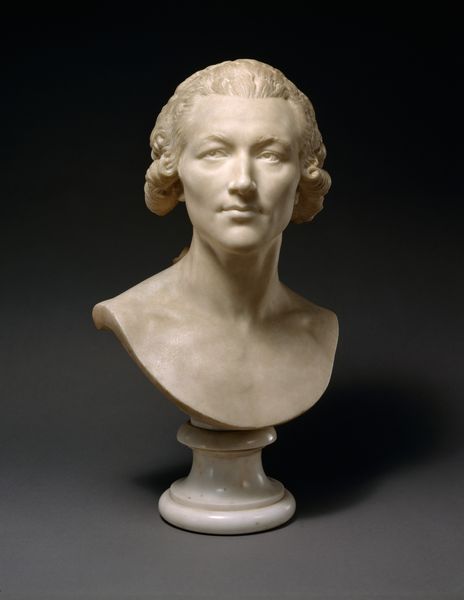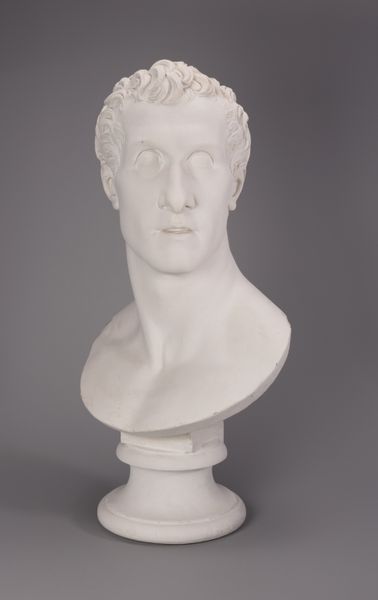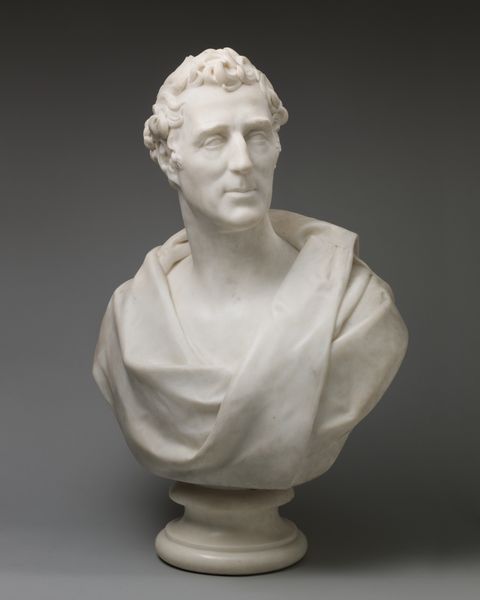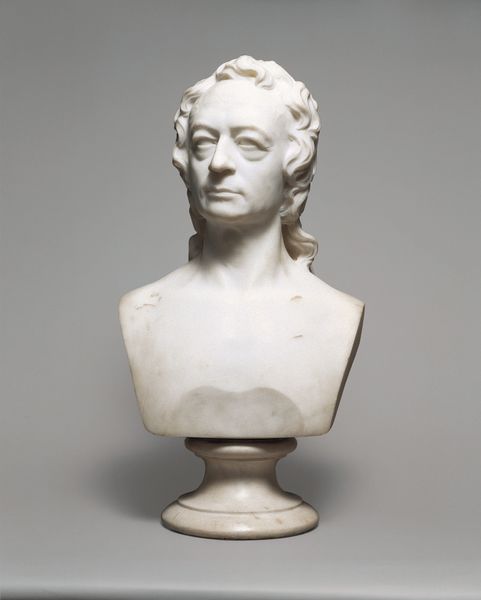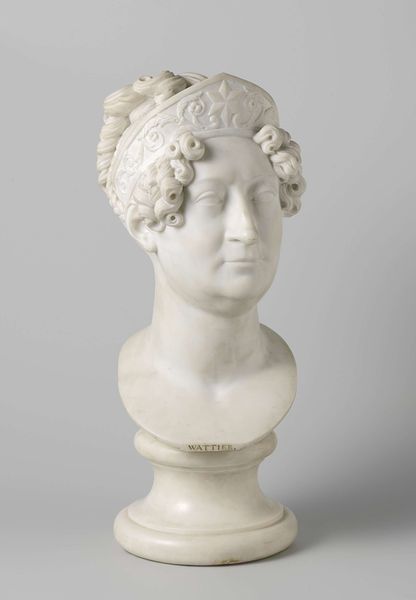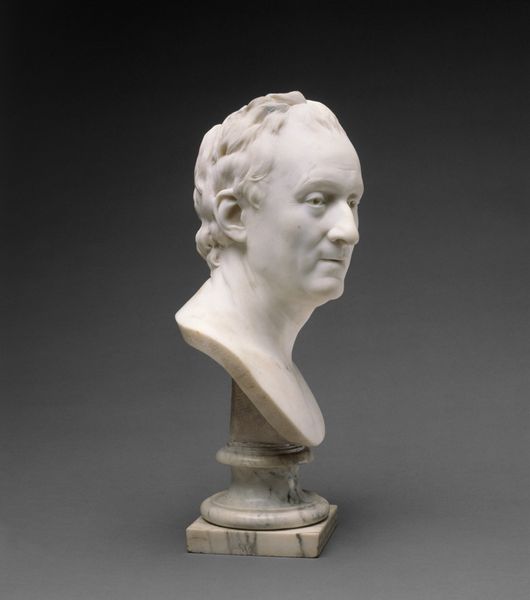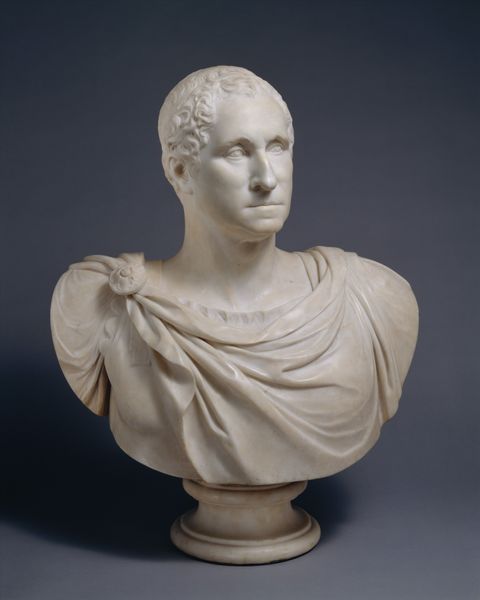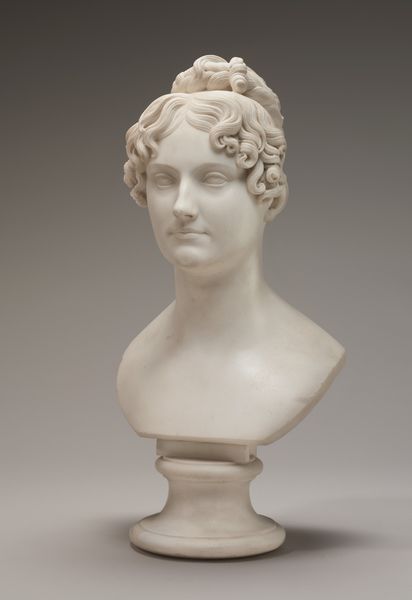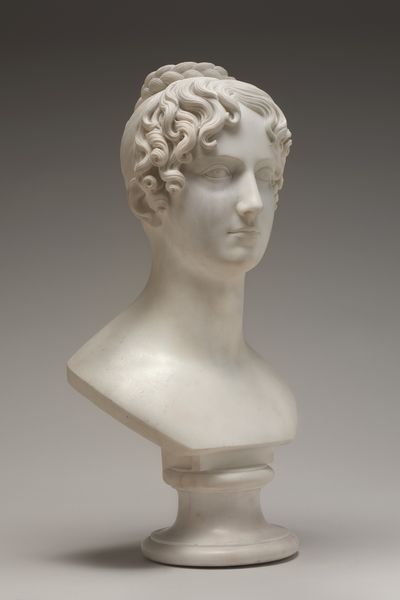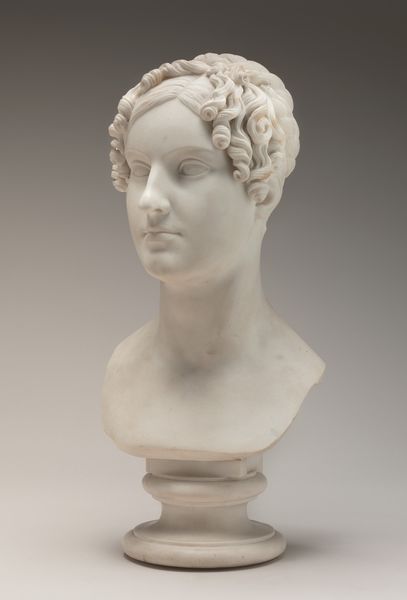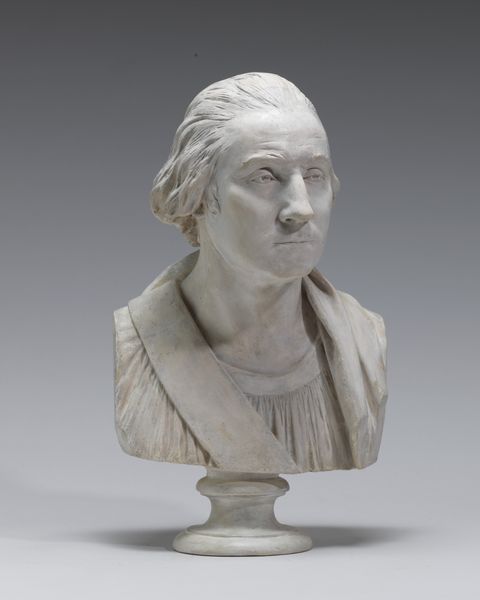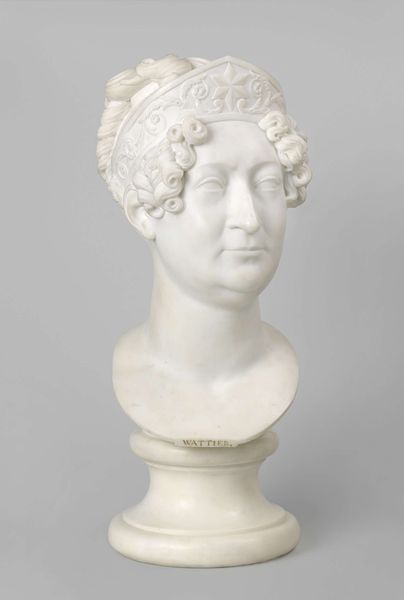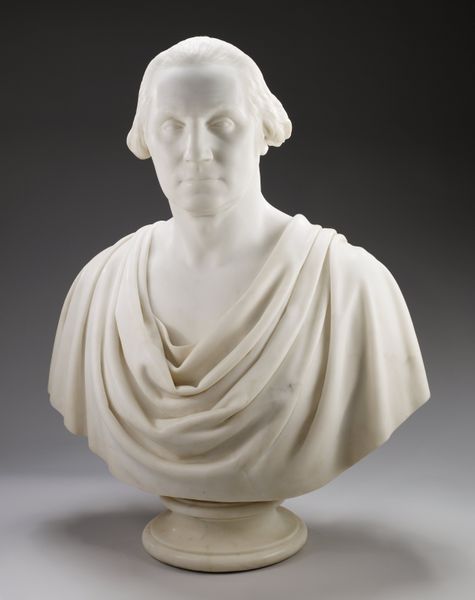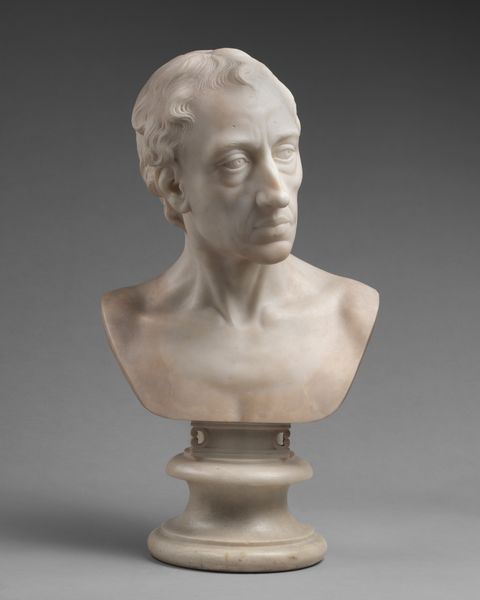
sculpture, marble
#
portrait
#
neoclacissism
#
classicism
#
sculpture
#
men
#
marble
Dimensions: 26 3/8 x 19 1/2 x 12 1/2 in. (67 x 49.5 x 31.8 cm)
Copyright: Public Domain
Horatio Greenough carved this marble bust of George Washington in the early 19th century. It stands as an attempt to define American identity through art. In the decades following the American Revolution, national identity was still under construction. Greenough, like many artists and intellectuals of the time, looked to classical antiquity for inspiration. He believed that emulating the virtues and ideals of ancient Greece and Rome could elevate the new nation. This bust, therefore, is not just a portrait, but an effort to ennoble Washington and, by extension, the American experiment. It's interesting to consider the role of institutions like museums and art academies in shaping these perceptions. Did they succeed in creating a shared visual culture? How did this vision resonate with the diverse populations of the young republic? Examining letters, diaries, and political pamphlets from the period can shed light on how this image was received and understood in its own time. The meaning of art, you see, always depends on its social and institutional context.
Comments
No comments
Be the first to comment and join the conversation on the ultimate creative platform.
